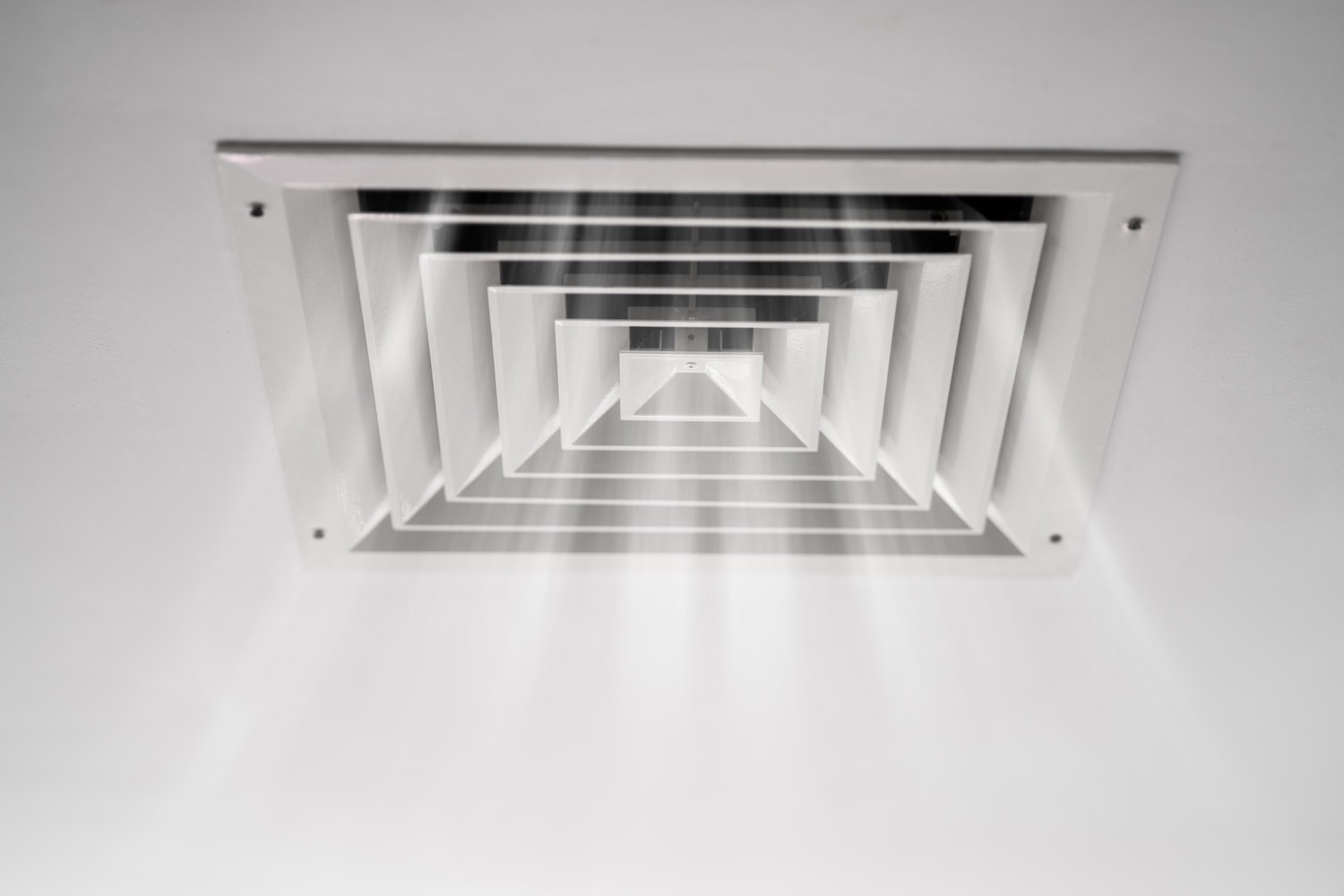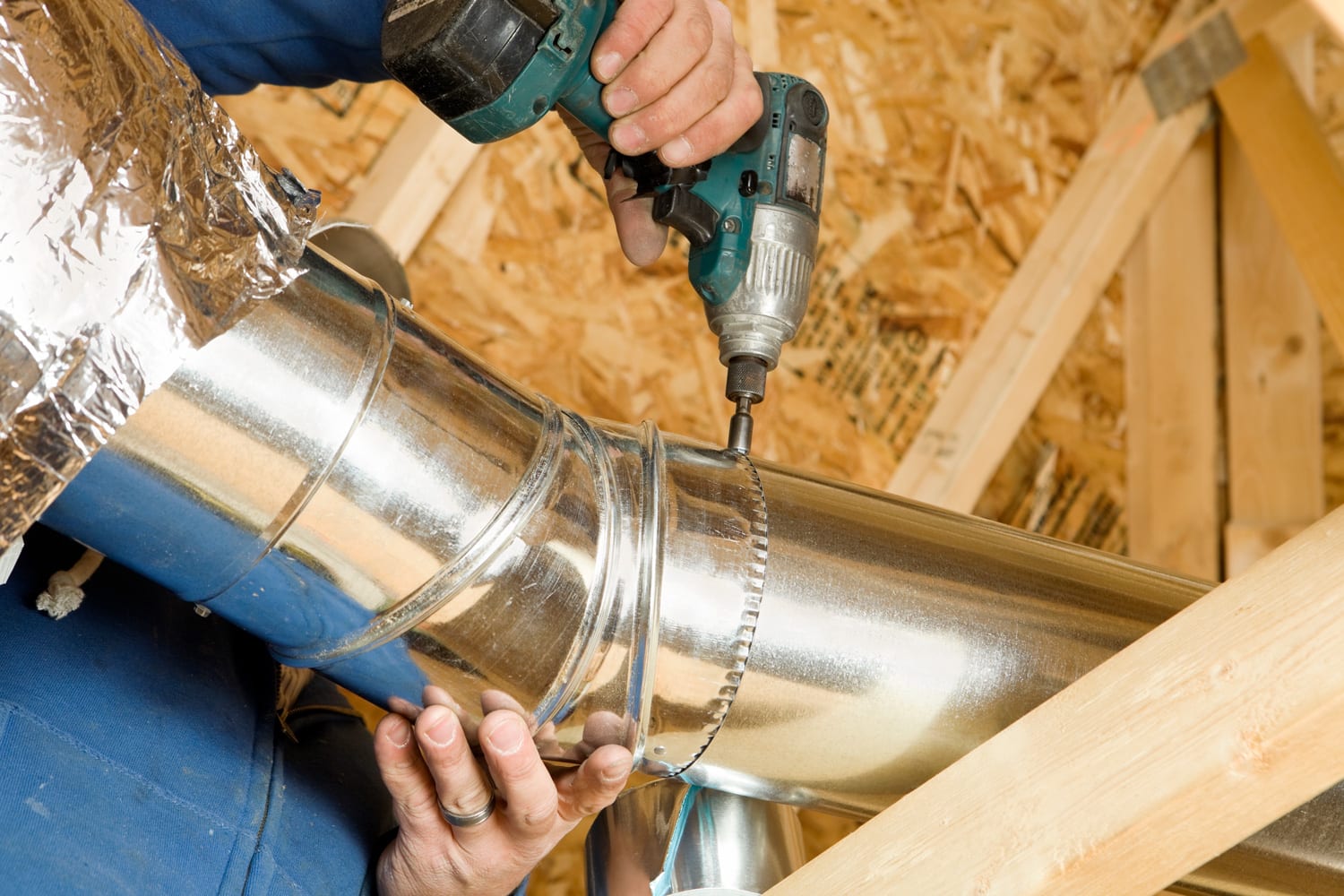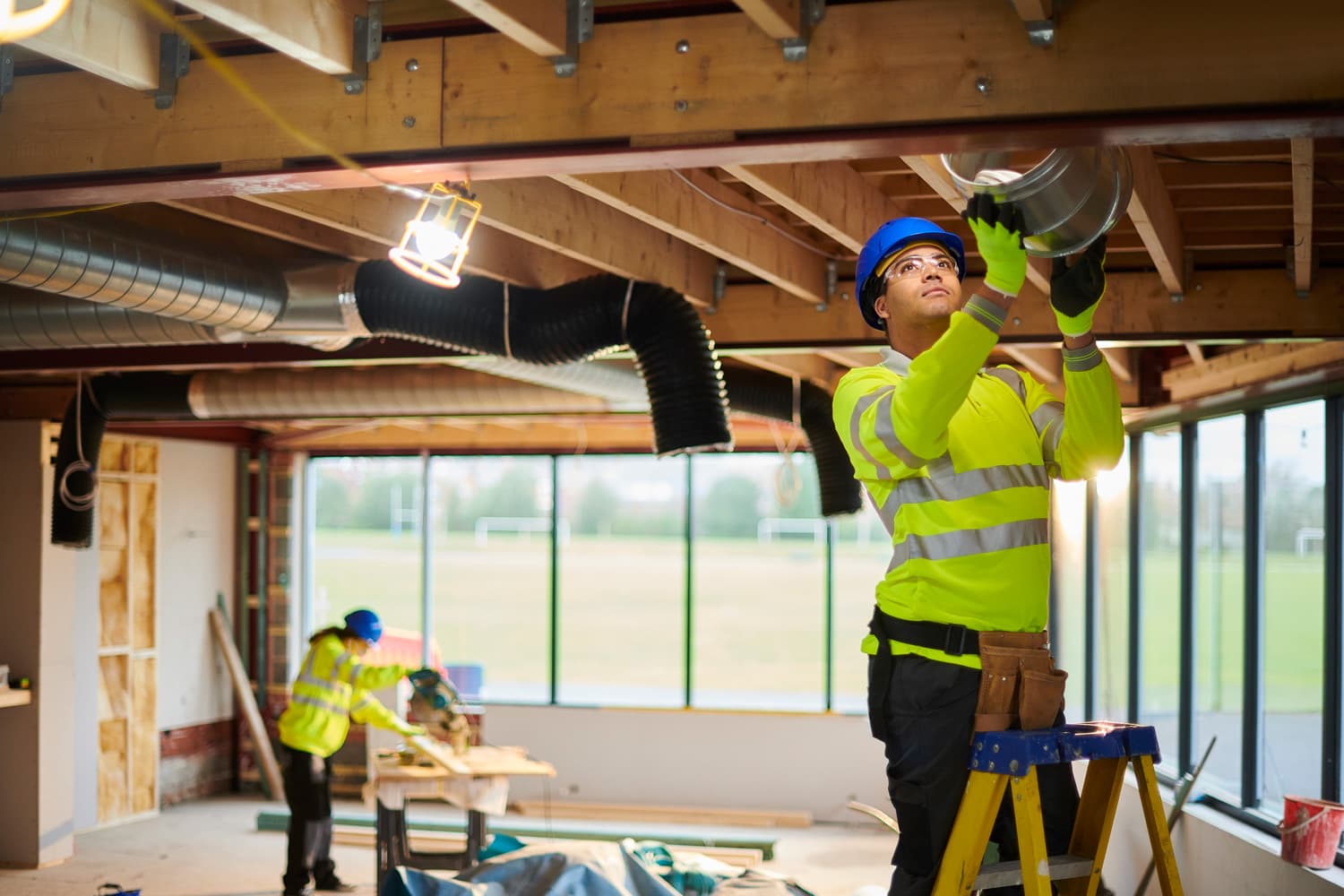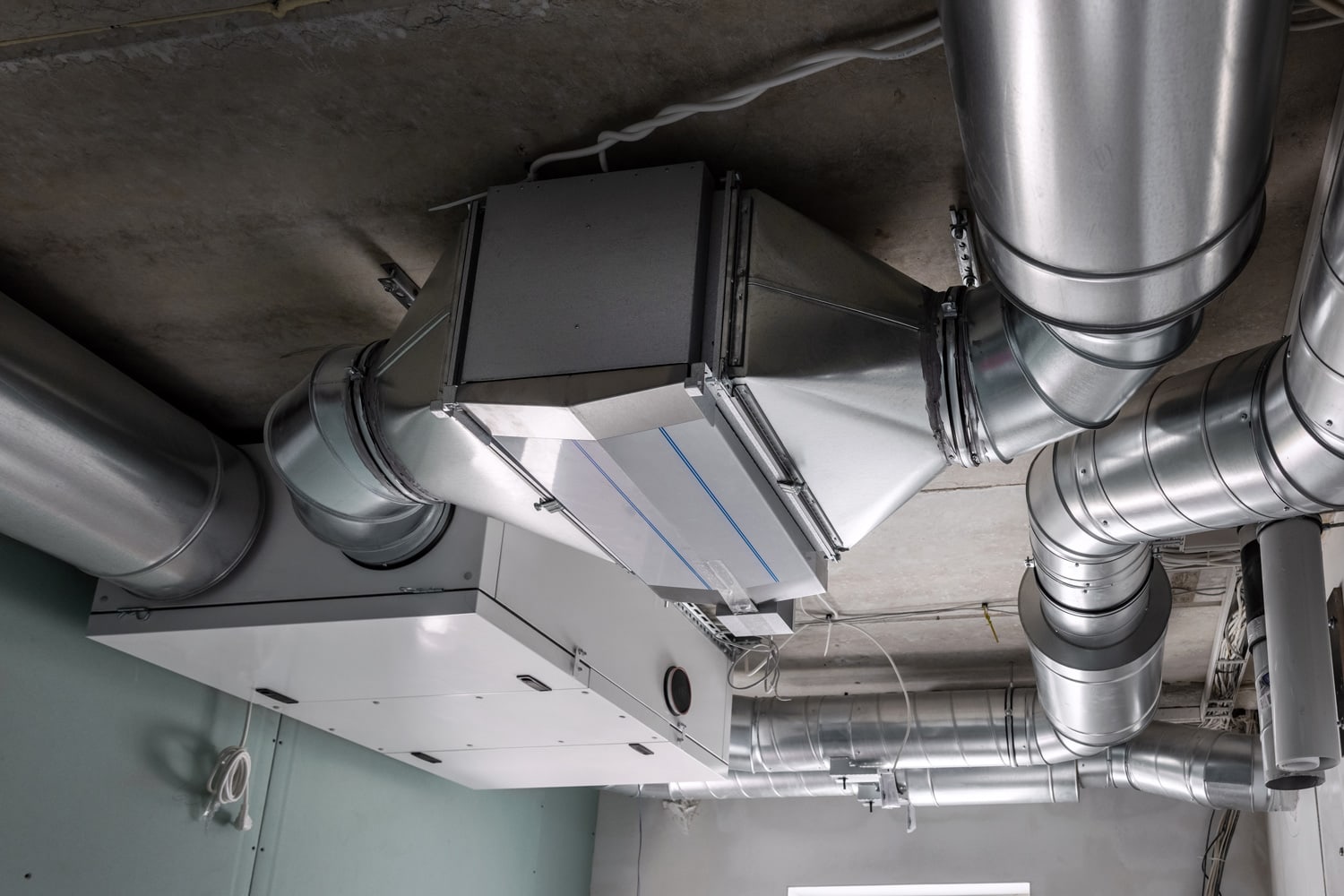Problematic ventilation may produce all kinds of noises, such as clicking, clanking, or banging. How do you stop the clicking sound quickly and efficiently? After extensive research, we came up with solutions for this problem.
If your vent is making a clicking sound, you should identify the source of the problem and rectify it accordingly. Look for damaged or loose ducts, items stuck in the ductwork or filters, or electrical malfunctions.
These issues are easy to repair, and once rectified, your vent will return to normal functioning.
You should try to eliminate any odd noises in your HVAC system as soon as you hear them. Read on as we outline the possible sources of clicking sounds in your vents and how to fix them.
Identify Why The Vents Are Clicking
![HVAC technician at work - How To Stop Vents From Clicking [Quickly & Easily]](https://hvacseer.com/wp-content/uploads/2022/10/HVAC-technician-at-work-How-To-Stop-Vents-From-Clicking-Quickly-Easily-2.png)
When you hear unfamiliar or amplified noises from your vents, you must check them immediately. To identify any abnormal noises from the vents, you should inspect them carefully.
The clicking might be coming from the outside, which means there could be a problem with the outside compressor. A clicking fan indicates it's in contact with another component as it spins.
Alternatively, a recurring click from inside the house is probably caused by an electrical problem.
Use a flashlight and check any nooks and crannies to find out what could be wrong. Be on the lookout for the following:
- Broken or loose ducts
- Items stuck in the vents or ductwork
- Loose electrical wiring
- Loose bolts or screws
Call a professional if you aren't equipped to inspect the vents.
How To Stop Vents From Clicking
Now that you know what could be causing the clicking sounds, the remedies are as follows.
Repair The Duct
Invite a professional to clean and inspect the ductwork. Have loose or damaged ducts removed and replaced.
Ducts expand and contract, which can make them lose shape over time. Therefore, regular maintenance of the ductwork is compulsory.
Check For Loose Screws
While cleaning the unit, keep an eye on the screws, and if the problem persists, contact a repair service. If your unit is no longer efficient, have it replaced.
Change Dirty Filters
Tiny toys, coins, or pencils could find their way into the vents, causing a clicking sound if your vents are on the floors. You can open the vent registers to find out what is causing the noise and ">change the filters.
Maintain regular filter cleaning and make replacements as needed because they can wear or malfunction in due course.
Here are some vent filters on Amazon.
Take Care Of Loose Wiring
If your air conditioner turns on or off, you may hear a click. This indicates a problem with the electric control via the thermostat.
System relay failure is also possible. Replacing an old relay switch necessitates careful handling of wires on both the old and new relays.
Unless you are a certified electrician, don't attempt to rewire any loose wires connected to your HVAC system.
You should engage the services of a professional to do the rewiring. Also, this might affect your system's warranty.
Other Noises That Come From Vents

Although there are everyday sounds that come from a working HVAC system, you may find that they sound different or they become intense. Whatever the case, here is what you might hear and how to decipher it.
Squealing
Some HVAC units make a squealing noise when you turn them on. The noise can come from the outdoor fan or the indoor blower motor.
Call a professional if it's the first time you are experiencing this because it indicates a problem.
Banging
Banging is most likely caused by a loose or broken component that could be nonessential. But you should not ignore the banging noise. It could be an indication that your AC compressor needs replacement.
Clanking
An out-of-place fan blade on an indoor blower or fan housing is a primary cause for clanking. Similar to banging noises, you may need to replace the compressor.
Operating the fan in this condition may result in additional damage to the components in contact.
Whistling Noise
If you hear a whistling noise while your HVAC system is running, the sound could be caused by a highly toxic refrigerant leak. You should turn the system off immediately and contact a professional.
A faint whistling, on the other hand, could be caused by an airflow issue.
Flapping Sounds
These sounds are likely caused by debris, such as leaves or twigs, in the fan's path. The culprits could be plants or vines growing near the outdoor unit.
Plants or vines can tear apart an HVAC system as they grow. If you are unable to remove the vines, consult an expert.
Popping
The sound is usually caused by the contraction and expansion of metal as the temperature varies. Insulating the ducts and hangers will help eliminate or lessen the noise.
Insulation also makes your HVAC system more energy-efficient.
Alternative Causes Of Noises In The Vents
To reduce noises in the vents, you should have a some idea of what could be causing them.
Blocked duct
Blocked or partially-closed air-conditioning or heating vents can cause the system to malfunction.
Increased pressure can lead to unexpected noises. Leave your vents open and unobstructed to keep things quiet and running smoothly.
Malfunctioning Compressor
A malfunctioning compressor may produce a grinding sound. Hissing may indicate that the compressor pressure is too intense.
Humming, on the other hand, may indicate a strained compressor. Handling refrigerants requires a license, so hire a professional to repair it.
Click here to see this compressor on Amazon.
Debris
Despite having air filters, debris can still enter the ducts. As the air moves the debris around the ducts, this can cause flapping, rattling, or buzzing noises.
If you've changed the air filter and still hear these sounds, clean the air ducts.
How To Reduce HVAC Noises

You already know the different types of noises and what causes them. These steps will help reduce those sounds straightforwardly.
Replace The Air Filter
Clean or replace your air filter regularly to ensure a more efficient HVAC and quality indoor air.
Regular Maintenance
Regular maintenance schedules should be part of preventive precautions to stop unnecessary HVAC noises.
Install Circular Vents
Rectangular ducts tend to make more noise because they contract and expand quickly.
Circular vents, on the other hand, make less noise due to their geometric shape. They provide excellent resistance to contraction and expansion.
Replace HVAC Ducts

Replace noisy ducts with ductless zoning options. Ductless options that operate quietly in the background are available.
Seal, Insulate, And Clean Your Ducts
You can avoid having to overhaul your HVAC system by cleaning, sealing, and insulating your ducts. Sealing the ducts plugs any air leaks that cause your HVAC system to work overtime and circulate dirty air.
Inspect The Dampers And Actuator
You can reduce duct noise by adjusting the actuator within the duct dampers. You can look for it in the supply area of your ductwork. It helps to reduce popping and banging noises.
Is It Costly To Replace A HVAC System?
If your house is old and the HVAC system has seen better days, it's time to replace it entirely. The replacement will involve much work and planning beforehand.
An estimate of a complete replacement costs $7,870 nationwide. The minimum cost starts at $3,200, while the maximum goes as far as $12,500.
The cost varies with each state because it must include the type of house, materials, and labor.
What Is The Lifespan Of An HVAC System?
Before you give up on installing a new HVAC system due to the cost, consider its lifespan: a well-installed HVAC system will last 10 to 25 years.
It will increase the market value of your home if you sell it after installing a sound HVAC system.
What Are Ducts Made Of?

You might have noticed that most ducts are made of galvanized steel or aluminum sheets. The sheets are rigid and often make noise when they expand or contract, transferring the noise all over the house.
However, these are not the only materials available for ducts. They also come in fiberboard and fiberglass.
Flexible ducts made of steel covered by thick plastic are also available in the market. These other materials have pros and cons, but consider them when upgrading your ductwork.
Winding Up
You might believe your mind is playing games with you when you hear a clicking noise coming from your ductwork. The sound could come from electrical issues, broken ducts, or items whirling around in the ductwork.
Inspect the vents or have a professional do it. Once you detect the cause of the irritating noise, use the solutions offered in this post to get peace of mind.
Check out these posts for more information on other HVAC issues.
Is It Normal To Have Condensation On Air Vents?
Can You Put A Hepa Filter In A Window Air Conditioner [Should You?]


